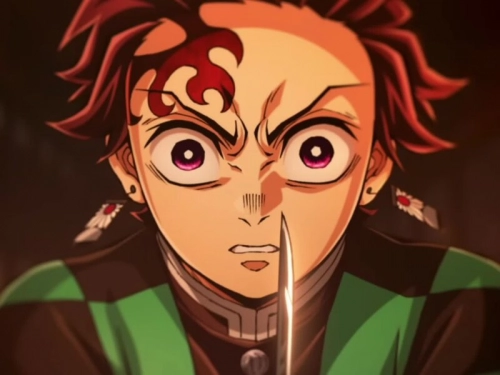The internet has a habit of creating characters that make us stop mid-scroll and think: “Wait, what did I just see?” Ballerina Cappuccina is one of those. A ballerina dressed in a tutu, spinning gracefully—yet her head is not human, but a steaming cup of cappuccino. Strange? Absolutely. Memorable? Without a doubt. This bizarre fusion of elegance and absurdity has transformed her into one of the most recognizable figures of the Italian Brainrot meme phenomenon that’s sweeping TikTok, YouTube, and beyond.
What Exactly is Ballerina Cappuccina?

At its core, Ballerina Cappuccina is a meme character—an AI-generated, anthropomorphic ballerina who belongs to the Italian Brainrot universe. She’s not from a movie, a cartoon, or even a planned franchise. Instead, she’s the internet’s latest experiment in remixing culture, where random visuals paired with catchy Italian-sounding jingles morph into icons overnight. She embodies the essence of meme culture: part nonsense, part creativity, and part cultural inside joke.
Origins of the Meme
The Italian Brainrot trend began in early 2025, when TikTok users started sharing surreal videos of animals and objects given exaggerated Italian names, accents, and musical chants. Ballerina Cappuccina quickly stood out from the chaos thanks to her catchy soundtrack and distinct look. Clips of her pirouetting with a cappuccino head, paired with a playful song, spread like wildfire. The sound got remixed into short TikTok audios, then migrated to YouTube edits, before spilling over into fan art and even Spotify tracks.
The Lore: Cappuccina’s Relationships
Memes rarely exist without lore, and Ballerina Cappuccina is no exception. In the unofficial canon, she’s married to Cappuccino Assassino—a cappuccino samurai with a katana. Their fictional romance is often referenced in the lyrics of her meme audio. She also has a sister, Espressona Signora, adding to the extended coffee-themed “family.” This strange narrative dimension makes her more than just a visual gag—it turns her into a character people can follow.
What Does She Look Like?
The visual design is as important as the sound. Cappuccina’s body is that of a classical ballerina—graceful lines, pink tutu, pointe shoes. But instead of a human face, her head is a perfectly foamed cappuccino cup. The result is a playful collision: beauty mixed with absurdity, refinement blended with randomness. That surreal juxtaposition is exactly what makes her so shareable.
The Viral Audio and Its Charm
The iconic audio snippet goes something like:
“mi mi mi è la moglie di Cappuccino Assassino e ama la musica la la sua passione è il ballerino”
Translated loosely:
“mi mi mi is the wife of Cappuccino Assassino, she loves music, her passion is the dancer.”
The sing-song Italian rhythm makes it instantly addictive. Even non-Italian speakers chant it for fun. This audio has become the heartbeat of Cappuccina’s meme presence—used in TikTok dances, cat videos, and parody edits across platforms.
How She Fits Into the Italian Brainrot Universe
Ballerina Cappuccina doesn’t exist in isolation—she’s part of a chaotic cast. Other characters include:
- Tralalero Tralalá – a dancing duck with chaotic jingles
- Bombardino Crocodilo – a crocodile infused with absurd humor
- Chimpanzini Bananini – a banana-loving chimp
Each of these characters thrives on the same formula: absurd visuals + catchy pseudo-Italian audio. But Cappuccina stands out because she merges human elegance with meme absurdity—something her animal counterparts don’t quite match.
Why Ballerina Cappuccina Went Viral
Her virality isn’t just luck—it’s the perfect storm:
- Absurdity factor → A ballerina with a coffee head is instantly scroll-stopping.
- Catchy audio → The playful jingle hooks people, even if they don’t understand it.
- Meme adaptability → She works in dance edits, funny fails, or even serious remix videos.
- Cultural humor → Coffee is iconic in Italian culture, ballet is globally respected, and mixing them feels oddly fitting.
The Role of AI in Her Creation
AI tools—image generators, voice clones, and remix platforms—were key in bringing Cappuccina to life. Unlike memes from 10 years ago that needed Photoshop or animation skills, this one was born from accessible AI creativity. Her existence represents how modern meme-making has evolved: anyone with a smartphone can prompt an AI and spark the next viral trend.
Ballerina Cappuccina Across Social Media
TikTok: Edits of kids and pets dancing to her song dominate “For You” feeds.
YouTube: Long-form meme compilations and lore explainers have millions of views.
Pinterest: Fan art boards are filling up with ballerina illustrations and AI edits.
Roblox: Players roleplay as Cappuccina in custom servers.
Reddit: Meme theorists debate her place in the “Brainrot expanded universe.”
She’s not just a character—she’s become a social media ecosystem.
Music and Remixes Inspired by Her
Her audio became so popular that remixes landed on Spotify, Apple Music, and Shazam. Tracks like “Ballerina Capuchina Funk EP” expand the meme into full-length songs. DJs and meme musicians rework her chant into EDM beats, slowed+reverb edits, and lo-fi versions. This pushes Cappuccina from a joke to a genuine piece of internet pop culture.
Merchandise and Fan Creations
From stickers to plush toys, marketplaces like MercadoLibre and independent print shops sell Cappuccina-themed products. Fan-made T-shirts, mugs, and figurines celebrate her design. On platforms like Pinterest and Etsy, artists create hand-drawn illustrations of her pirouetting with her cappuccino head steaming.
Community Reactions and Impact
Gen Alpha: Kids chant her lyrics on playgrounds, turning her into a language of play.
Parents: Confused but amused—many wonder if it’s “nonsense” or just harmless fun.
Teachers: Frustrated, as “brainrot” culture sometimes interrupts class focus.
Meme experts: See her as an example of creativity, showing how kids are experimenting with new forms of digital culture.
Criticism and Concerns
Not everyone is a fan. Critics argue that memes like Cappuccina:
- Encourage “screen addiction.”
- Replace meaningful content with “nonsense culture.”
- Might be distracting or confusing for kids.
But defenders say it’s just a modern-day playground chant—similar to nursery rhymes, only digitized for a new generation.
What Makes Her Stand Out
Among countless brainrot characters, Cappuccina shines because she balances grace and chaos. She isn’t just funny—she’s oddly beautiful. That makes her a more enduring figure than animals or objects alone.
The Future of Ballerina Cappuccina
Will she fade like most memes? Or will she evolve into a long-term cultural symbol? Some signs—like official remixes, merchandise, and her presence across multiple platforms—suggest she might stick around longer than most viral fads.
Final Thought
Ballerina Cappuccina isn’t just a ballerina with a cappuccino head. She’s a symbol of how AI, humor, and internet culture collide to create viral icons. Strange, surreal, and unforgettable—she’s proof that sometimes nonsense can be the most meaningful kind of creativity.





Comments